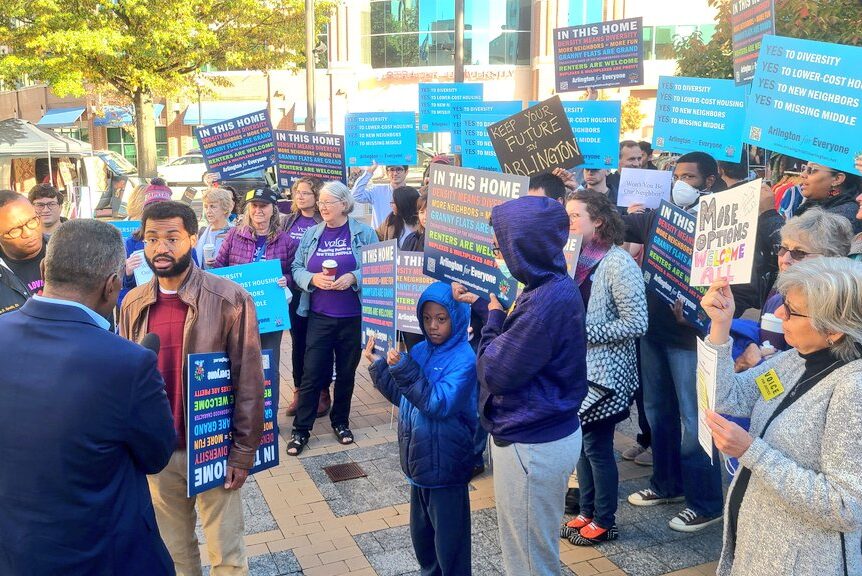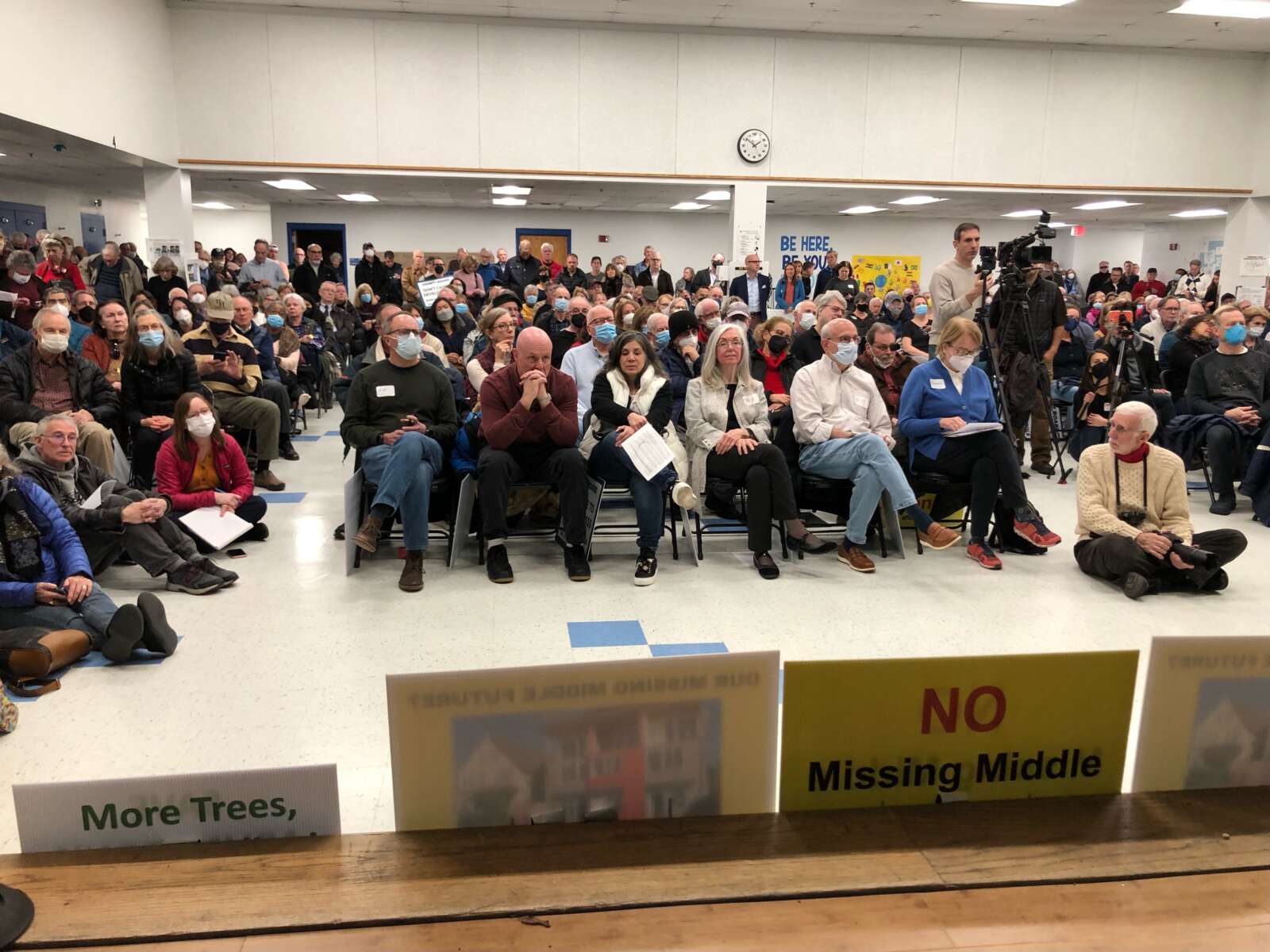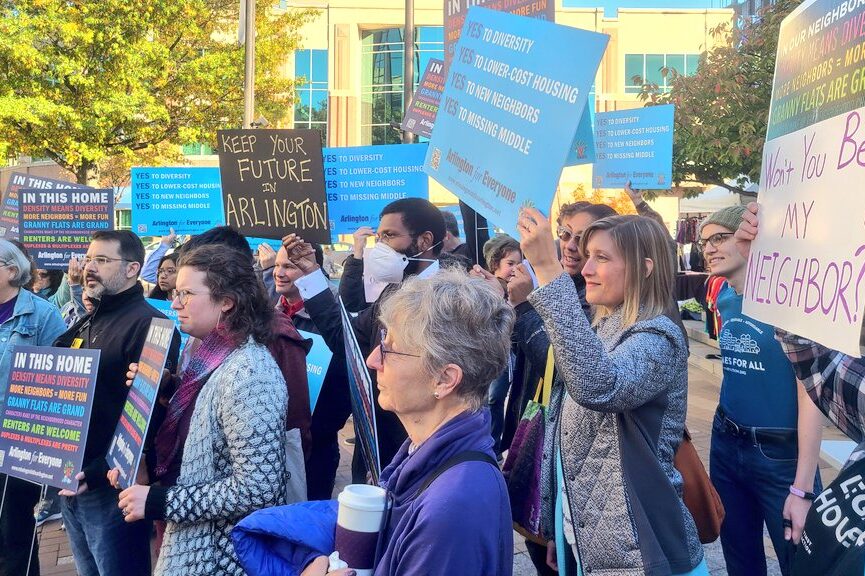Supporters of Missing Middle housing options will rally this weekend in favor of allowing denser dwellings in neighborhoods zoned for single-family homes.
The rally this Saturday, Feb. 25, will be held at 1 p.m. at Courthouse Plaza near the county government headquarters at 2100 Clarendon Blvd. It will include speakers from a half-dozen civic organizations that support the proposed zoning changes, which go before the Arlington County Board for a final vote in March.
“The rally will demonstrate to the Arlington County Board the strong and widespread support for expanded housing options in the County,” Jane Green, co-founder of YIMBYs of Northern Virginia, said in a statement.
“The County Board is considering expanded housing options and will vote in March on zoning reform,” she said. “The question is, will the County Board reverse decades-long exclusionary zoning policy to bring more attainably-priced housing options to Arlingtonians — or will they scale back the expanded housing options which are much needed in Arlington?”
The rally follows one held in January by Missing Middle opponents.
Arlingtonians for Upzoning Transparency and Arlingtonians for Our Sustainable Future, both opposed to the proposed zoning changes, held a rally that drew several hundred people to hear from several speakers on their predicted effects of the changes.
Representatives from organizations told ARLnow there are no plans to hold follow-up rallies before the Planning Commission is slated to vote on the proposed changes on Monday, March 6 and the Arlington County Board is scheduled to vote on them on Saturday, March 18.
This proposal has been touted as a way to partially undo the lasting impacts of county decisions that excluded people of color from many neighborhoods, such as racially restrictive deed covenants, the decision to ban rowhouses, and a physical wall white residents built to keep out those living in Halls Hill, a Black enclave of North Arlington.
Speakers at this weekend’s rally represent the NAACP Arlington Branch, the League of Women Voters of Arlington and Alexandria City, the Potomac River Group of the Sierra Club, Virginians Organized for Interfaith Community Engagement and YIMBYs of Northern Virginia, Green said.
“This rally will feature speakers raising their voices in favor of historic zoning reform — the right thing to do for the environment, Arlington’s tree canopy, and [Black, Indigenous and people of color] and historically marginalized people in Arlington,” she said.
On these points, opponents say these changes will encourage development and thus tree removal, while failing to provide homes affordable to people making less than $100,000, and thus not doing enough to address lower levels of homeownership among people of color.
One critic recently argued a better tool for combating racial inequality would be with “housing reparations,” such as down-payment assistance. (Arlington County has a program like this for first-time home buyers.)
Price is one reason the rallying organizations have advocated for options such as eight-plexes, which the county documents suggest would be more affordable than two- to six-unit dwellings.
Last month, the Arlington County Board removed this ceiling in a 3-2 decision, with County Board Chair Christian Dorsey and member Katie Cristol dissenting. The draft zoning changes, if approved next month, would cap at six-unit dwellings.
The Arlington branch of the NAACP said this preliminary decision could violate the Fair Housing Act, though it has continued generally supporting the Missing Middle proposal.
Meanwhile, there’s recently been buzz about the term county staff and Board members have been using instead of “Missing Middle” — “Expanded Housing Options,” or EHOs.
ARLnow wrote about how the county was preparing to use this term back in 2021 after staff heard through some community engagement that the name was confusing and connoted affordable, or at least somewhat attainable housing.
The back-and-forth over the name stems from a bottom-line concern on both sides of the issue: affordability.
Opponents connect the confusion about the name and the subsequent change to the fact that “Missing Middle” housing would be attainable to households taking in $100,000 or more.
Proponents say lower prices could be a downstream effect of increasing housing types, as there could be more options at a greater range of price points as well as less competition for existing stock.




